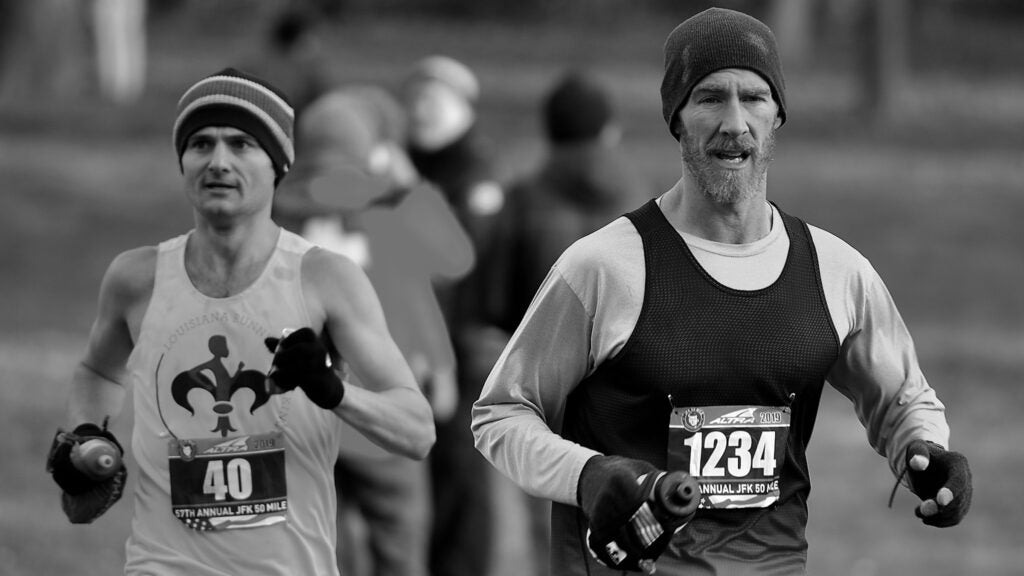No products in the cart.
Outdoor Adventure
America’s Oldest Continuously-Held Ultramarathon Is Only Looking Forward
Mike Spinnler cries nearly every time he recounts memories as a runner and long-time race director of the JFK 50, the oldest continuously run ultra in the country.
Such memories include the time he first ran the iconic Maryland race when he was 12 years old, or the year he cheered on his 60-year-old wife as she crossed the finish, or memories of watching his two sons racing. For him, this race is a member of the family.
In 1993, five years after his tenth JFK finish, Spinnler became the race’s second race director, where he’s been ever since. By then, he’d set the course record (5:53:05) in 1982, and added another win in 1983, for a total of five top-five and six top-ten finishes.
“It just keeps growing in its prestige,” he says.
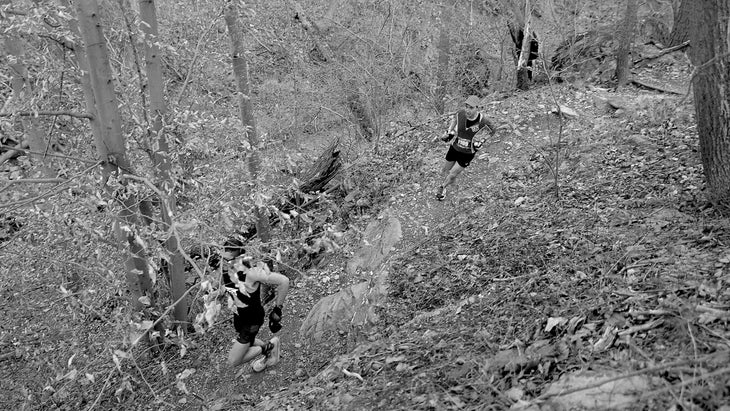
A Race and a Pledge
The JFK 50 started in 1963, the same year President John F. Kennedy was assassinated. The president had instituted a public health program to improve the nation’s fitness, supporting the launch of a series of 50-mile races around the country. But as years went on, the only one that stuck around was the JFK 50.
“Kennedy’s mission was this: Improve your physical fitness, improve your lifestyle, improve your country,” says Spinnler. “We heeded his call and have been doing it for 60-plus years.”
The JFK 50 course is located about an hour northwest of Washington D.C., covering traditional lands of the Indigenous Massawomek and Shawandassee Tule (Shawanaki/Shawnee). One of the race’s primary appeals is that it’s a horseshoe-shaped, point-to-point course with three distinct sections: The Appalachian Trail (miles 0-15), the Canal/Tow Path (miles 15-42), and the rolling finish (miles 42-50).
The race starts in Boonsboro, Maryland, follows a few miles of paved roads before connecting with the Appalachian Trail (AT), where the course climbs more than 1,000 vertical feet in five miles, crests to the high point, and follows rocky singletrack before dropping 1,000 vertical feet halfway into the race (mile 14.5), to connect with a flat marathon distance along the C&O Canal Tow Path. The last several miles are rolling country roads, where it finishes at Springfield Middle School in Williamsport.
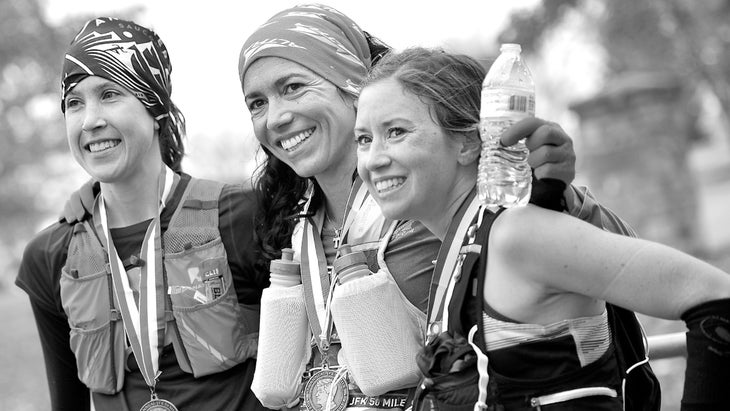
Ruhling Aims for the Win
In 2019, Seth Ruhling, an unsponsored athlete, showed up to the JFK 50, slept in his car the night before, and won the race in a blistering 5:38:11, his debut 50-miler. Within hours of winning, he sealed a sponsorship with The North Face.
Ruhling, 29, now lives and trains in Boulder, Colorado, and he’ll be returning for his second JFK 50. Since Ruhling’s 2019 win, he has made a name for himself with a sixth place finish at the Pikes Peak Marathon in 2021, second place at Montana’s Rut 50K, first place at the Broken Arrow Skyrace 46K, and most recently, sixth at CCC 100K during the week of UTMB in Chamonix, France.
In 2020, JFK 50 was one of the only races in the country that didn’t shut down with the pandemic. Ruhling had planned on racing, but got injured. “I always wanted to go back,” he says.
Ruhling was particularly drawn into this year’s race because of its deep field of registered elites, which had at one point included 2023 Western States winner Tom Evans, Matt Daniels, Adam Merry, and Sean Van Horn—all of whom have since dropped.
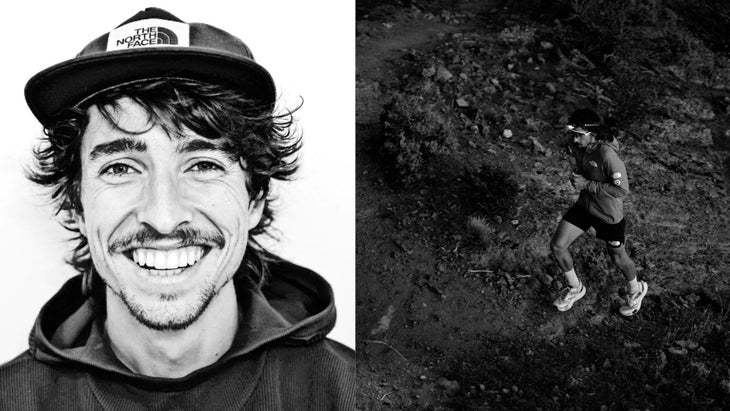
His strategy for the mixed course, which requires technical trail chops as well as fast road turnover, is to attack every single section. He says that, while the JFK 50 is known more as a “track race,” it’s a mistake to discount the early trail miles. “The record is going to happen on the towpath, sure, but only if it’s set up with efficient running on the AT section,” he says.
RELATED: Essential Gear for Your First Ultramarathon
Speaking of records, when asked about his goals for the race, Ruhling did not mince words. “I definitely want to win,” he says. “I’m going to go for the course record. I’m going to send it.” He also showed deep respect for Hayden Hawks’s stout course record of 5:18:40, set in 2020. “Really, I just want to go run fast and see what I can do.”
The JFK 50 may be a forgiving course, and a great first race to consider for the ultra-curious. “If you’re coming from a road background, JFK 50 is the best intro to trail running and ultra,” Ruhling says. “There are people all over the towpath cheering for you. It’s so fun. Such a good community event.”
‘This Race Is Going to Be a Celebration’
Jennifer Lichter, 27, is a professional athlete for The North Face living in Missoula, Montana, and she too will be gunning for the win at this year’s JFK 50 Mile.
Lichter is a three-time winner of the Rut 50K, two-time winner of the Lake Sonoma Marathon, the Broken Arrow 50K course record holder, and she recently represented the USA at the World Mountain Running Championships 46K, in Innsbruck, Austria, where she placed fourth, and first American.
RELATED: Mike Foote and Jennifer Lichter Adventure Into The ‘Shining Mountains’ of Montana
This April, after winning the Lake Sonoma marathon for the second time (second overall), North Face colleagues Zach Miller and Ruhling both encouraged Lichter to sign up for the JFK 50. With a background in collegiate track and cross-country and, more recently, a strong mountain running resume, this varied skill set will suit her well for JFK 50 success.
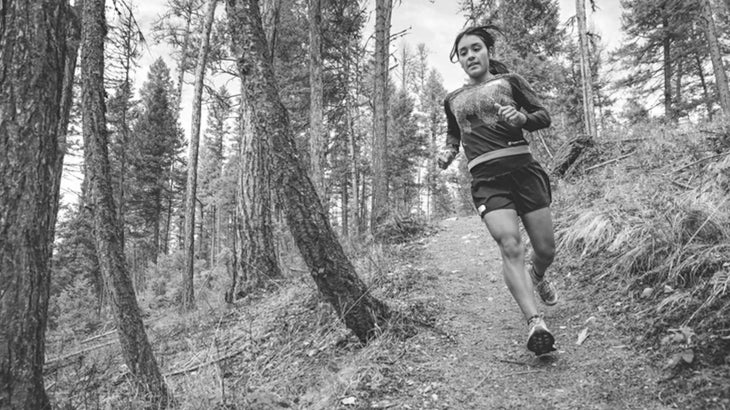
“I’m ready for a new challenge,” she says. “I love mountainous runs, but I also like grinding out controlled long efforts.” Her normal training incorporates a lot of speed and road running, anyway, so it wasn’t an entirely new approach for this build. According to Strava, she’s been putting in heavy miles. “Not gonna lie, this has been the best training block in 2023,” she says.
After an injury last winter, she approached this year with intention and strategic rest. For example, after winning the Rut 50K in September, she took a full week off before easing back into training for for JFK 50. This will be Lichter’s first 50-mile race, and she’s on the hunt for the win and course record set in 2022 by Sarah Biehl (6:05:42). Biehl broke the ten-year-old course record (6:12:00) set by Ellie Greenwood in 2012.
“This race is going to be a celebration of everything I’ve been through physically and mentally this year,” she says. “I’m just excited to support that race community and tradition. I’m all about that.”
RELATED: The Best Trail Running Shoes of Winter 2024
Pushing Edges, Changing Lives
“We love to look back with great pride about this race,” says Spinnler. “But we’re also constantly looking forward, always wanting to make it better.” He thanks his predecessor, William “Buzz” Sawyer, the original JFK 50 race director (1963–1992), who really instilled that outlook into the event team.
Spinnler likes to summon JFK for inspiration, too. “President Kennedy would be pleased to know that this race is still going on,” says Spinnler. “He was trying to get people to live a life of vigor, to use their bodies. I just want to really revel in the positivity of the event. People come out for the JFK 50 and—I know this is cliché, but it’s true—it changes their lives.”
Perhaps Spinnler’s favorite JFK 50 memory of all was when, in 1983, he glimpsed his mother and father at the finish line right before winning the race. “There’s a photo floating around of my mother grabbing my hand to celebrate as I won. I still look at that photo and tear up, and that was 40 years ago,” he says.
“When all the runners are there, lined up at the start, at downtown Boonsboro, I’m telling you, I get goosebumps just thinking about it. What’s going to unfold? Race day always has this ‘Christmas morning’ effect, and Christmas morning never gets old.”
Source link

